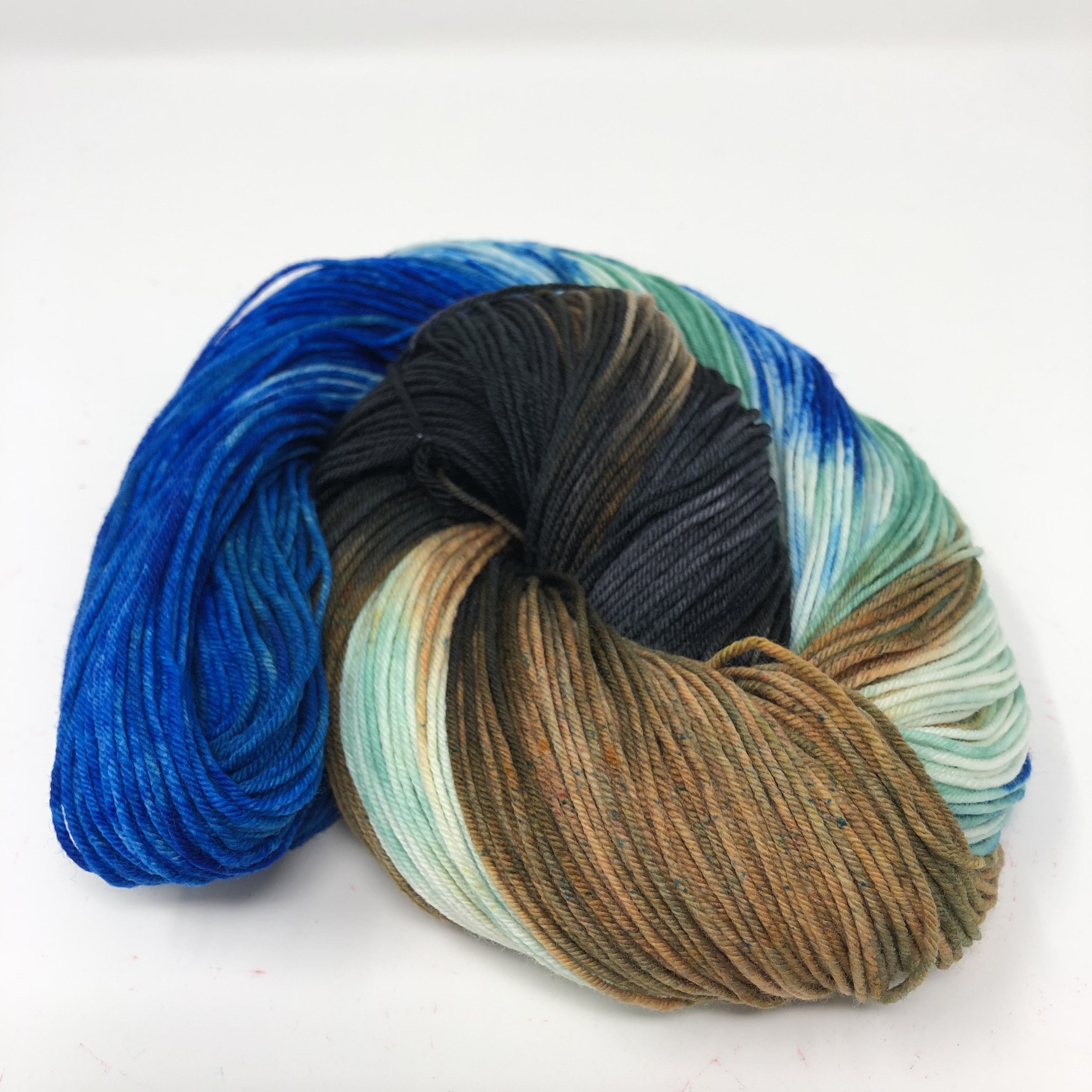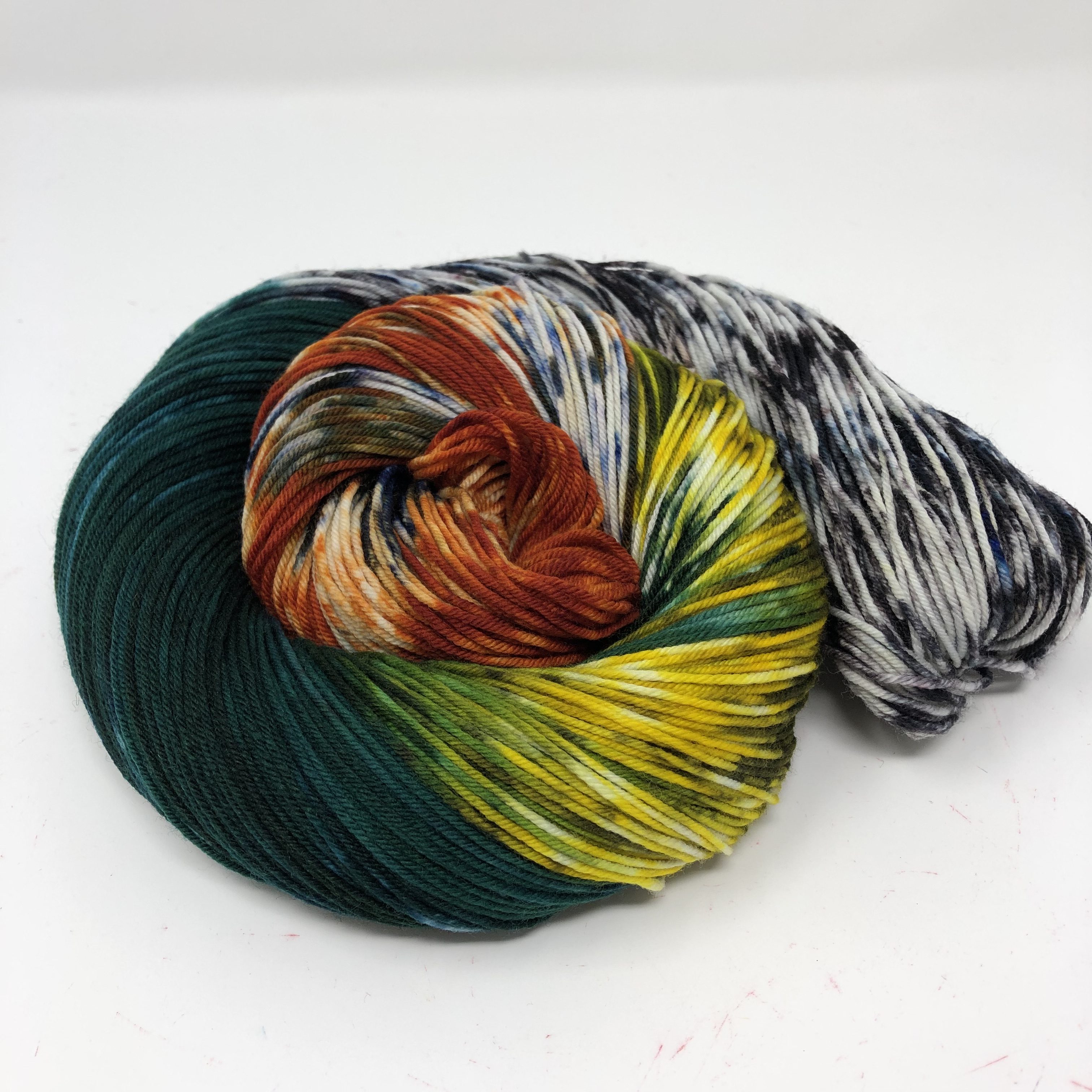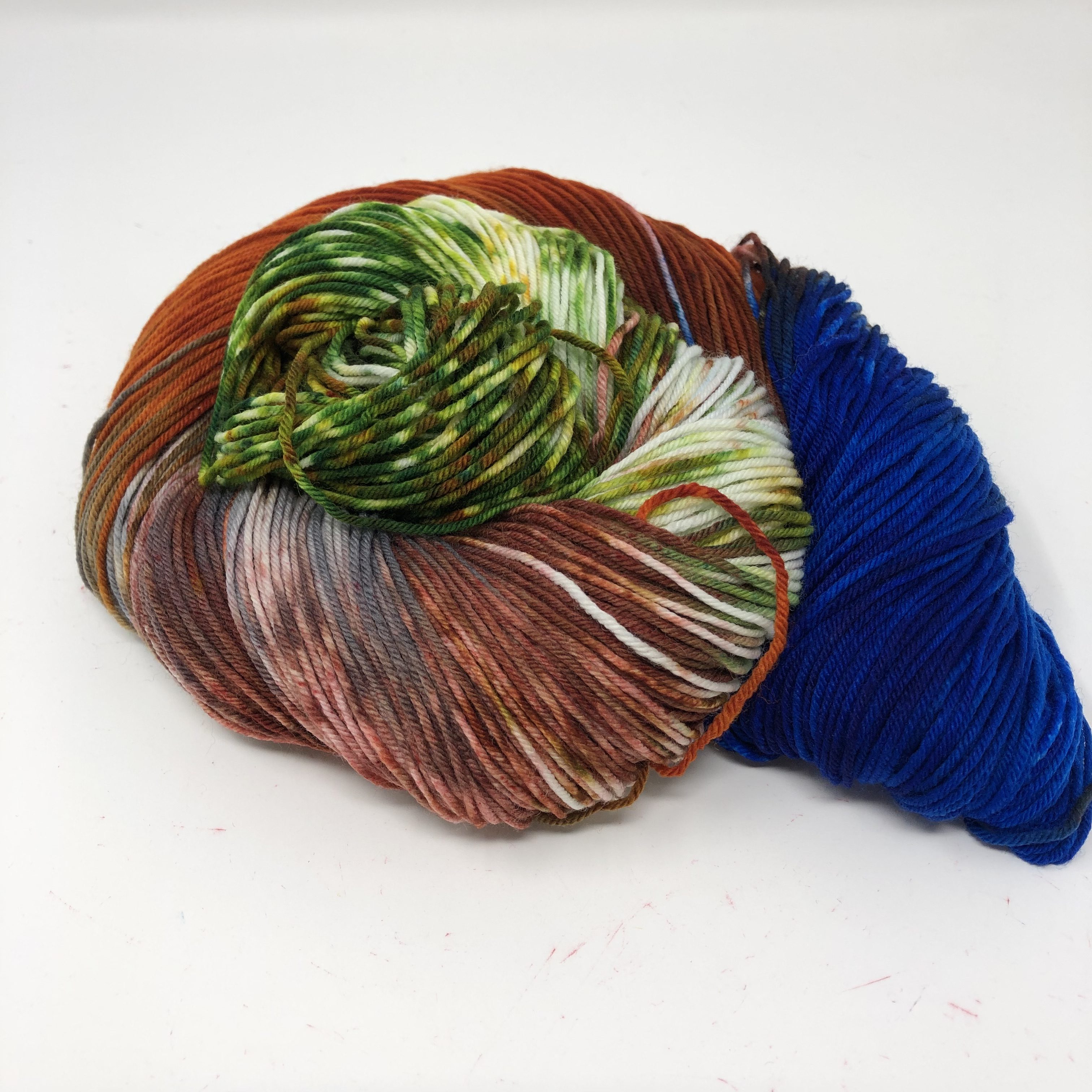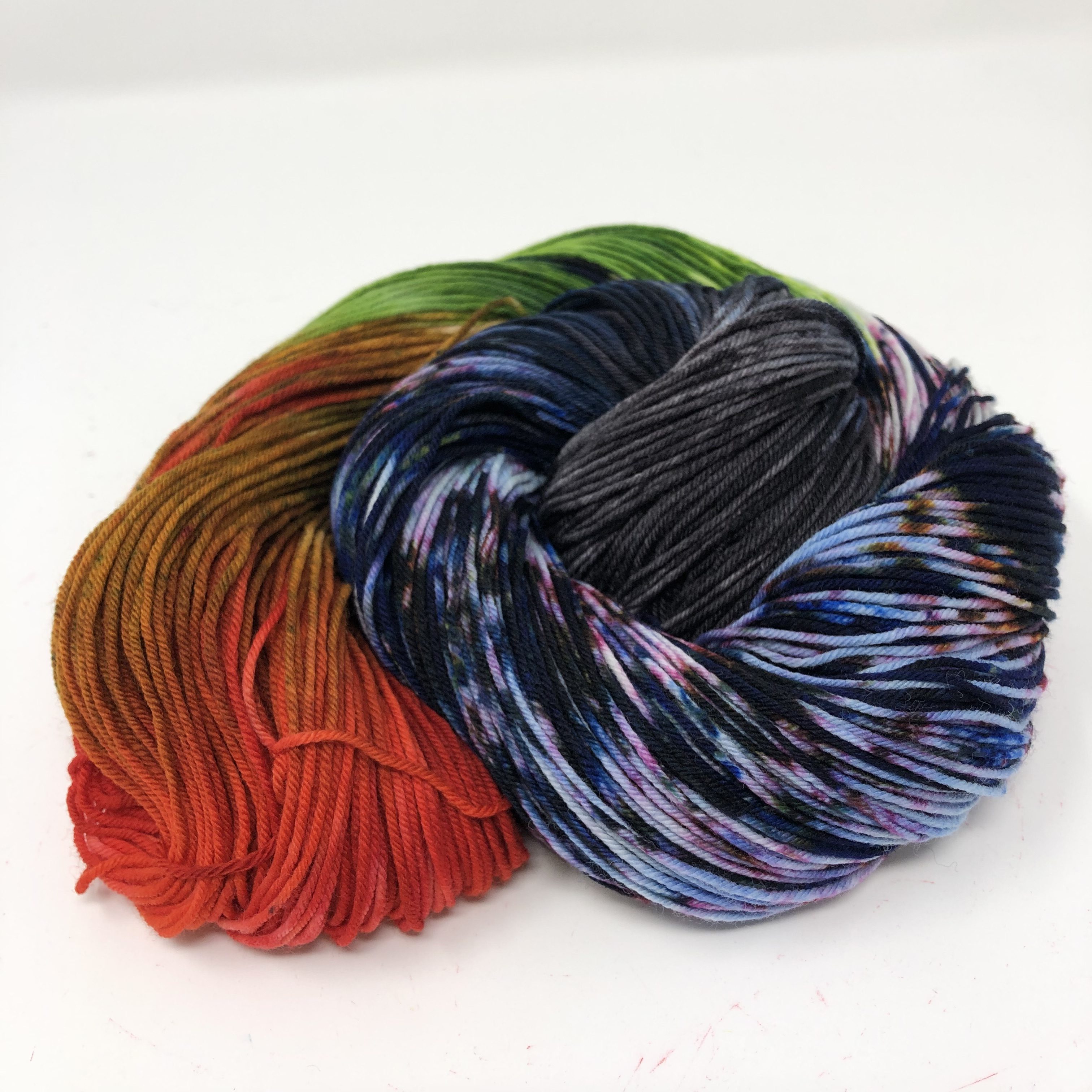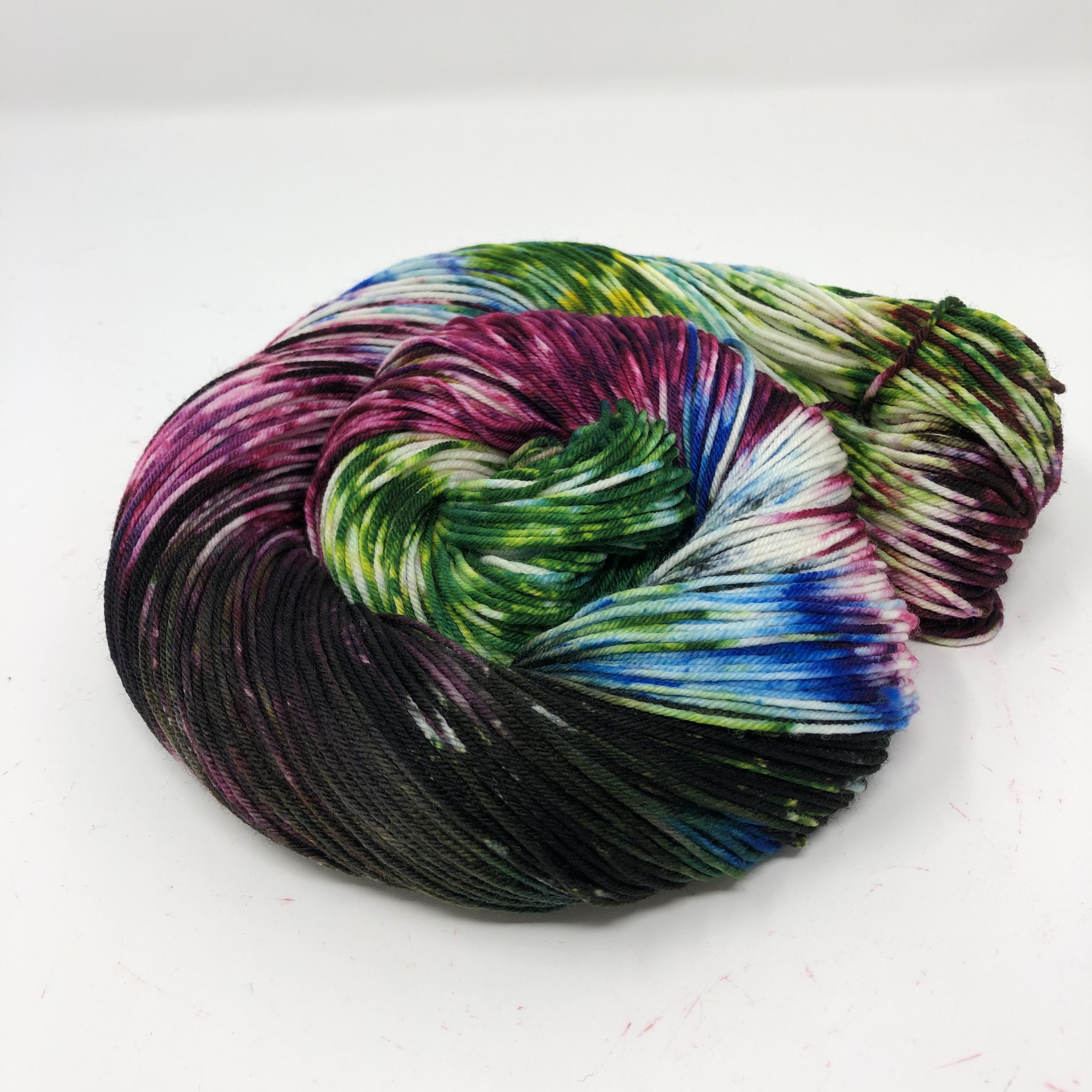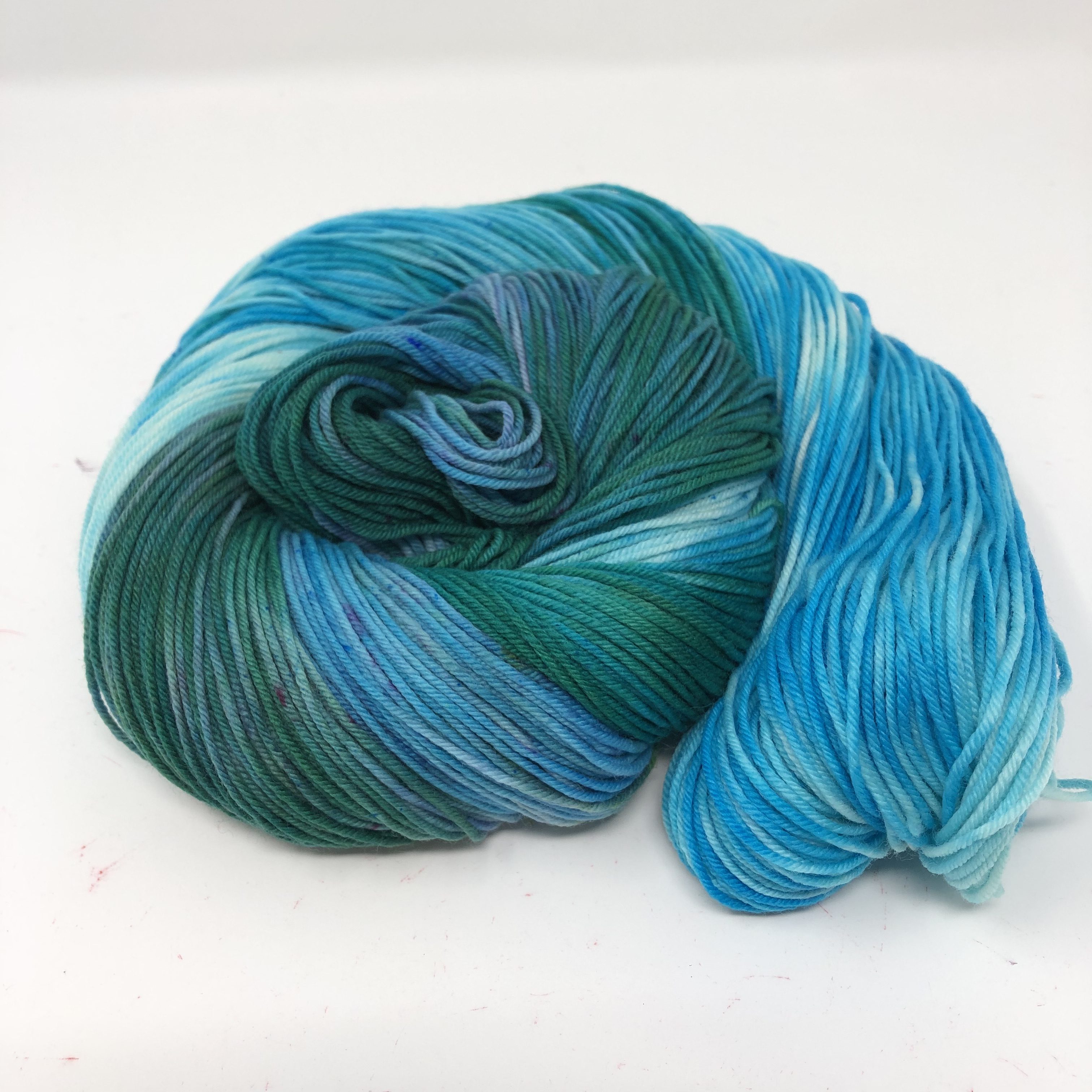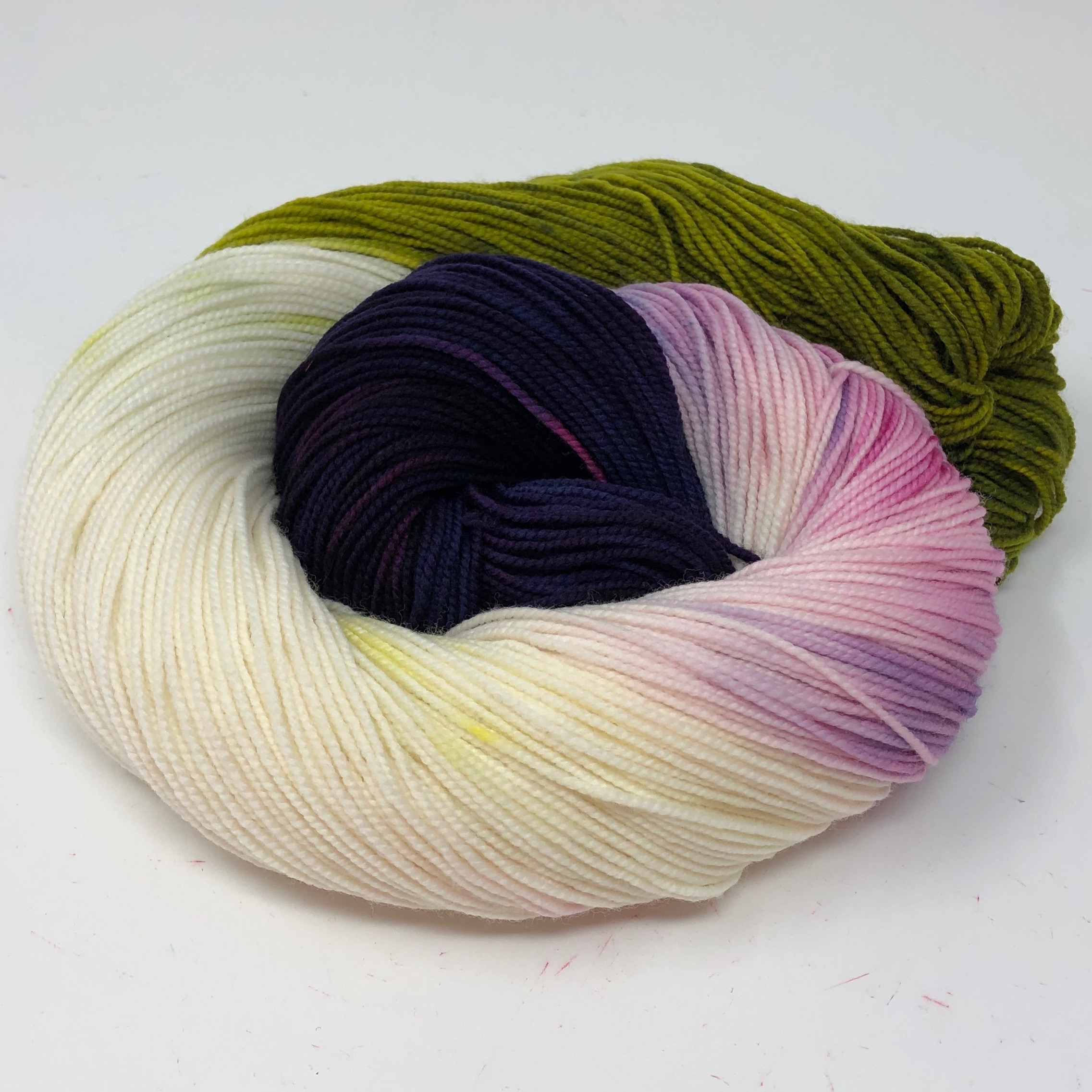We won’t even get into the whole colonialism/US-territory/white supremacist basis for why this is a part of the US here. Instead, we’ll talk about the sea turtles that nest here, and the snow white beaches…
HerStory July 2019: Amy Sherald
July’s HerStory recipient, Amy Sherald, became a household name when she was announced as Michelle Obama’s choice as portrait painter for her official First Lady portrait. Along with the artist tapped to paint Barack, they were the first black artists ever to paint official presidential portraits. Although she’s been painted (see what I did there?) as an overnight success, she’s been a working artist for decades, and has an amazing body of work.
Sherald’s work focuses on the black experience in America. For the most part, her subjects are the only focal point in her paintings; backgrounds are mostly monochromatic (although some of her newer pieces feature backgrounds that are a part of the story the painting is telling) and it’s the person being painted you are drawn to. She exclusively paints black subjects, often stopping people in the street and asking if she can photograph them for her work, but deemphasizes their skin tone by rendering it grey (in her words, as a “way of challenging the concept of color-as-race”), while choosing bright colors and prints for their clothing and backgrounds.
Sherald’s style has been described as “magical realism” or “stylized realism,” and she is a portrait artist, first and foremost; no landscapes for her. Her subjects seem to be gazing at the viewer, not smiling, not acquiescing, but merely existing. The result is arresting; most of her subjects look out of the painting, unapologetically themselves, not smiling for the viewer, but they are thoughtful and strong. If you haven’t seen her work, get over to her website (http://www.amysherald.com/) and spend some time looking through her portraits; they are compelling and telling. Strong and empowering.
Our July colorway, Believing in the Good, is inspired by the 2018 portrait entitled She Always Believed in the Good About Those She Loved. In it, a woman gazes out of the portrait with a look of satisfaction on her face. She’s not smiling, nor does she need to be. She wears a dark blue dress liberally sprinkled with lemons (harkening to the seminal Lemonade album by our first HerStory recipient of the year, Beyoncé). She looks like someone you want believing the good about you. It’s a stunning piece, and creating a colorway to pay homage to it was such a fabulous challenge.

July Sassy Holidays 2019: Bikini Day
July 5th is National Bikini Day, and we are here for it. The mid-1940s was when bikinis began to be worn, and they are named, for some strange reason, after the Bikini Atoll where the United States conducted atomic tests. Whatever, we are just happy that we are in communities in which body acceptance and inclusion is our bread and butter (as well as all inclusion/intersection/advocacy), and we love that we have spent that last couple of summers sporting our own bikinis. As the day approaches, we also find ourselves pouring over the lyrics of that 1960s song, She Wore An Itsy Bitsy Teensie Weenie Yellow Polka Dot Bikini. Do you realize that the entire song is all about how self-conscious the woman in the bikini feels about being in the bikini? Do you think the songwriter was simply making an observation? Was he attempting to empower her, and give her strength? Or was he just being a jerk, and judging her for wearing it? The popularity of the song DID boost bikini-wearing, and helped to usher in the era of the bikini-clad surf movies, so maybe the music group was all about empowerment.. At any rate, wear your bikini with pride on July 5th, and make sure you put sunscreen on!
She was afraid to come out of the locker
She was as nervous as she could be
She was afraid to come out of the locker
She was afraid that somebody would see
Two, three, four, tell the people what she wore!
It was an itsy bitsy teenie weenie yellow polka-dot bikini
That she wore for the first time today.
An itsy bitsy teenie weenie yellow polka-dot bikini
So in the locker she wanted to stay.
Two, three, four, stick around we’ll tell you more!
She was afraid to come out in the open
And so a blanket around her she wore.
She was afraid to come out in the open.
And so she sat bundled up on the shore.
So in the blanket she wanted to stay.
Refrain!
Now she is afraid to come out of the water.
And I wonder what she’s gonna do.
‘Cause she’s afraid to come out of the water.
And now the poor little girl’s turning blue.
So in the water she wanted to stay.
Refrain!
From the locker to the blanket,
From the blanket to the shore,
From the shore to the water
Guess there isn’t any more.
-Itsy Bitsy Teensie Weenie Yellow Polka Dot Bikini by Brian Hyland
Want a bikini body? Put a bikini on your body!
National Parks 2019: Rocky Mountain
Every single time we see this park name, we start singing the John Denver song:
“But the Colorado rocky mountain high
I’ve seen it rainin’ fire in the sky
The shadow from the starlight is softer than a lullabye
Rocky mountain high (Colorado)”
This national park is “only” 415 acres, but you really feel like you’re on top of the world, and our colorway will help you get there.
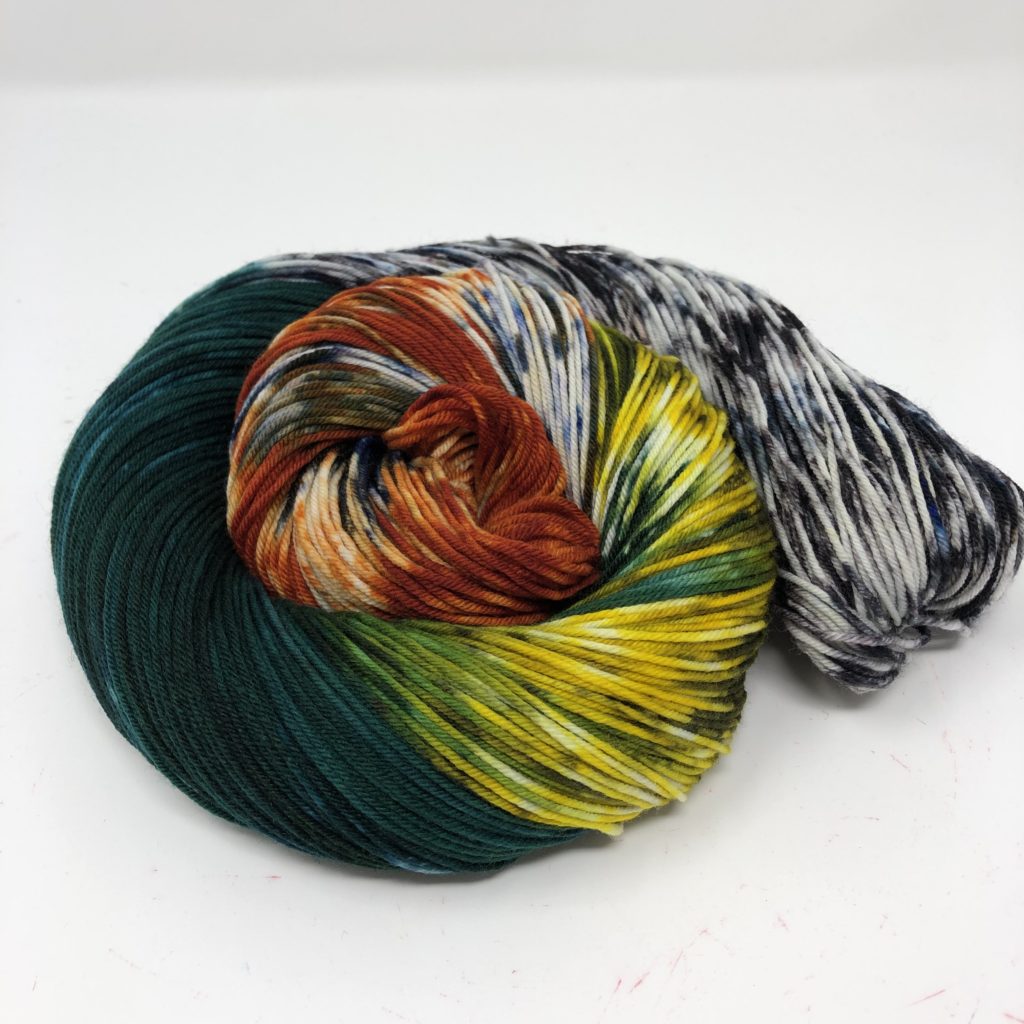
National Parks 2019: Capitol Reef
This week, we’re heading to red rock country in Utah to explore Capitol Reef National Park. Capitol Reef is chock-full of things you might not expect from a desert-dwelling national park, like historic orchards, full of pears and walnuts, and and actual wrinkle in the earth (scientific name: monocline). But it’s also full-on desert, with cliffs, canyons, domes, and bridges.
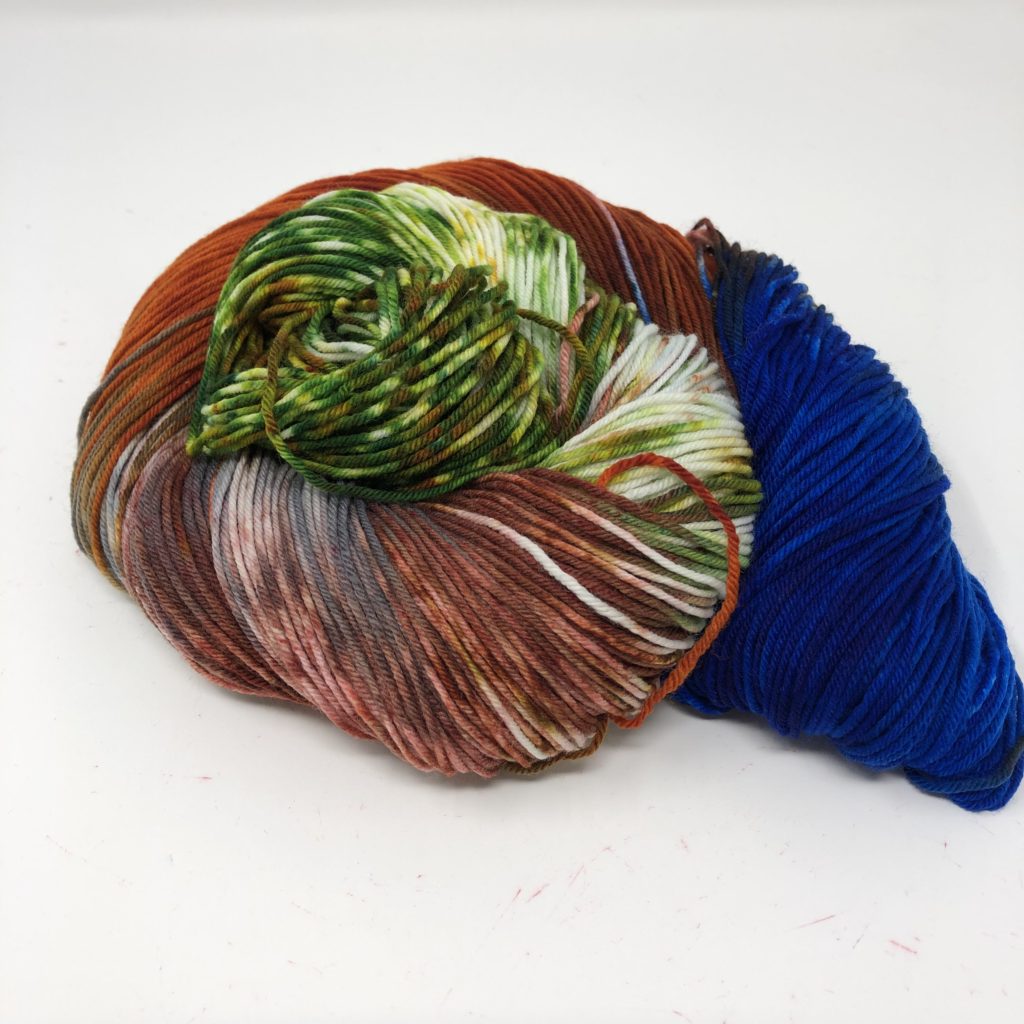
National Parks 2019: North Cascades
North Cascades National Park in Washington State is home to over 300 glaciers and the rugged and breathtaking Cascades Mountains. It’s lauded as an important place to study the effects of climate change and global warming, and features temperate rain forests and alpine peaks and woods. It’s less than 3 hours from Seattle, which means I should definitely plan a trip there…
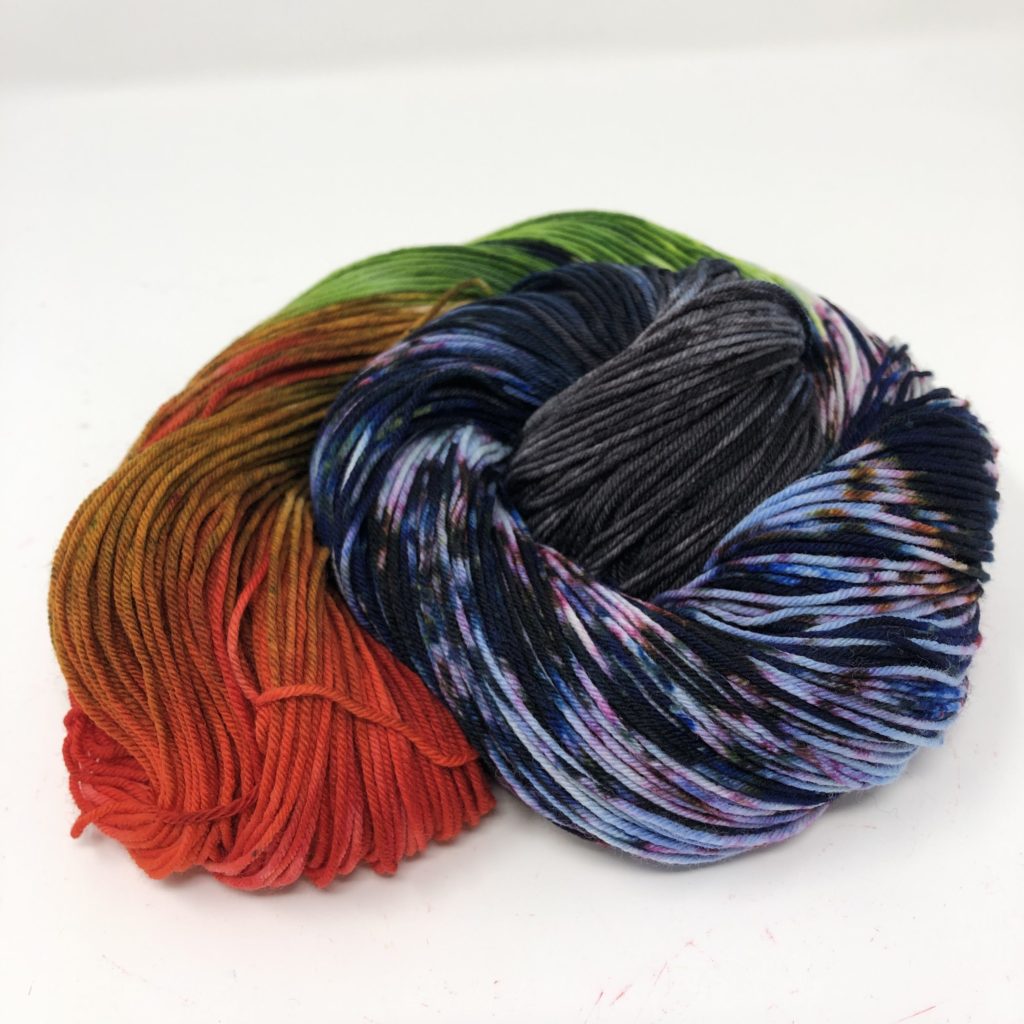
National Parks 2019: Wrangell-St Elias
Park number three in our series is Wrangell-St Elias in Alaska is 13.2 MILLION acres. As the park webpage states, that’s as if Yellowstone, Yosemite, and all of Switzerland were combined. MASSIVE! The park itself ranges from the ocean all the way to mountain peaks, so imagine our delight when we realized the colorway could be anything and everything? We believe we chose well in the colors we used to represent this beautiful public space… what do you think?
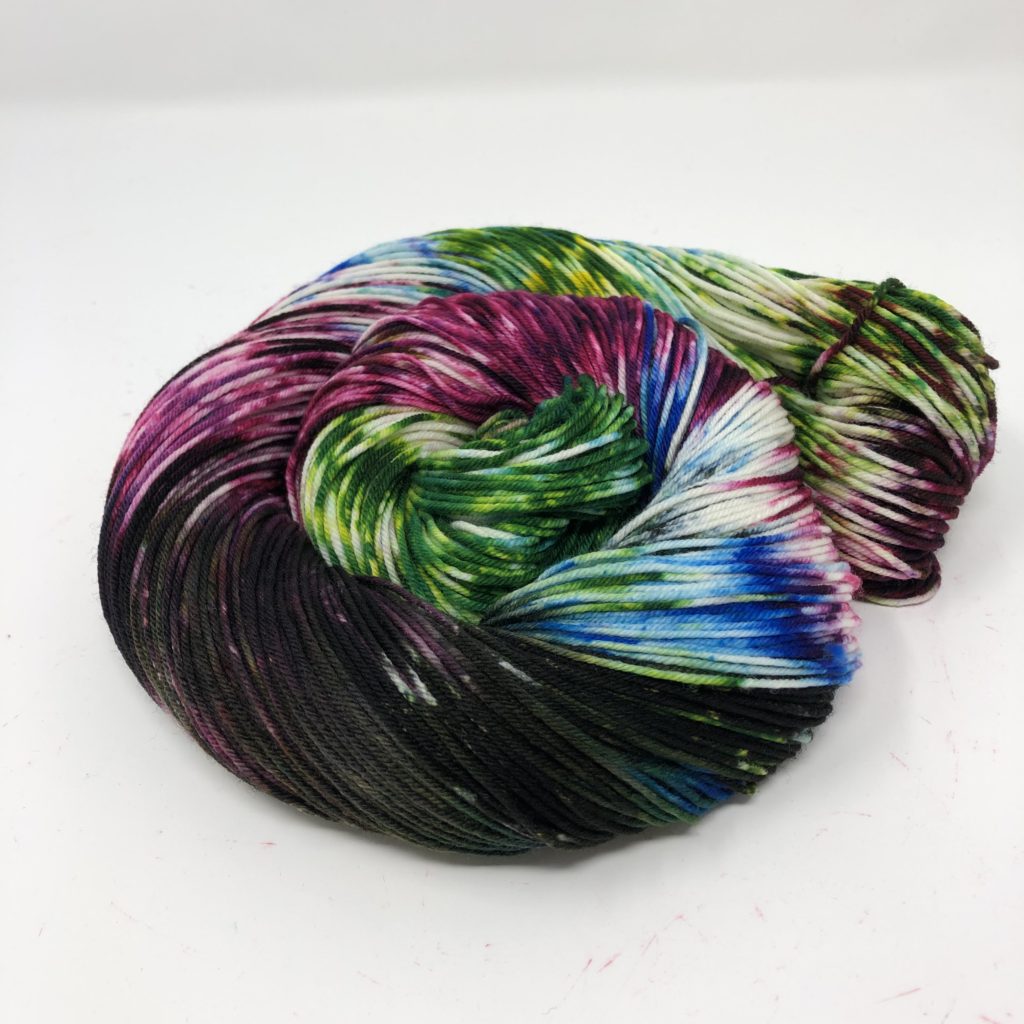
National Parks 2019: Channel Islands
Our second National Park of 2019 is the gorgeous Channel Islands. From the National Parks webpage: “Channel Islands National Park encompasses five remarkable islands and their ocean environment, preserving and protecting a wealth of natural and cultural resources. Isolation over thousands of years has created unique animals, plants, and archeological resources found nowhere else on Earth and helped preserve a place where visitors can experience coastal southern California as it once was.”
Check out the Channel Islands Instagram page for aaaaaalllll of the inspiration!
The sample for Shannon’s Lickity-Split socks was made in Channel Islands.
June Sassy Holidays 2019: Best Friend’s Day
Saturday, June 8th is National Best Friend’s Day, and we here at Knitted Wit could not be more happy about it! We’re celebrating with a colorway that brings Lorajean’s soul-color (purple) and Shannon’s soul-color (lime green) together in one deliciously interwoven colorway. We are also celebrating by texting Golden Girl’s theme song lyrics to each other aaaaallllll day long! Wanna play along? Get ready for a wonderful ear-worm:
Thank you for being a friend…
Traveled down a road and back again
Your heart is true, you’re a pal and a confidant
I’m not ashamed to say
I hope it always will stay this way
My hat is off, won’t you stand up and take a bow
And if you threw a party
Invited everyone you knew
Well, you would see the biggest gift would be from me
And the card attached would say
Thank you for being a friend…
Thank YOU for being a friend, too! For exploring these off-the-grid holidays with us, for supporting and loving us, for being our pals and confidants. Spend some time on Best Friend’s Day reaching out to the people in YOUR life who deserve the biggest and best gift, who will travel those roads with you, who are your people.
HerStory June 2019: Nnedi Okorafor
Our June HerStory recipient, Nnedi Okorafor, is a Nigerian-American sci-fi and fantasy writer who delves into what she refers to as Africanfuturism in her varied works. She is a second-generation Nigerian-American who spent her formative years in the midwest, kicking ass and taking names both athletically AND mathletically. She fell in love with science fiction and fantasy at a young age, and considers Nigeria, which she visits frequently, to be her muse. It was her bout with scoliosis at 13, and the resulting short-term paralyzation, that inspired her deep-dive into creative writing, and caused a “what-I-want-to-be-when-I-grow-up” swerve from entomology to fiction writing.
Her books, and the histories and backstories of her characters, are deeply inspired by African themes and culture, and thus are so very different than the histories and cultures that have long dominated the genres she writes in. Both sci-fi and fantasy have long been the realm of the white male, focusing on Euro-centric histories (see: JRR Tolkein, CS Lewis, etc), and it’s only recently that women and BIPOC (Black and Indigenous People/Person(s) of Color) have been gaining a foothold in the mainstream of these genres. Reading Nnedi Okorafor’s work, one gets a sense for the magic and mysticism that informs the lives of her characters. She deftly weaves deep-rooted tradition with far-reaching technology (as in the Binti series) or a magical world that’s co-existing quietly with non-magical society (as in the Akata Witch series). And then there’s the straight-up feminism inherent in her books. Her heroines are young women, working against a still-existent and oh, so pervasive mysogyny that threatens to stymy their abilities to reach their full potential. But, through hard work, inherent skill, and learned knowledge, they survive and thrive. Much like real-life heroines like Nnedi Okorafor.
Our June HerStory colorway is inspired by the book cover of Akata Witch, the first book in Nnedi Okorafor’s young adult series about a young woman coming into her own in a world she never knew existed (but explains so much). It’s been referred to as the “Nigerian Harry Potter,” but it’s so much more. The story is so rich and beautiful, and Sunny’s journey is so amazing and fraught with stress and tension. If you are a fan of sci-fi and fantasy (or just a fan of good storytelling), grab the book and cast on a pair of socks to honor it and Nnedi Okorafor today.

